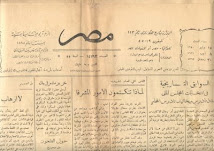
Daily News - Egypt
By Sarah Carr
First Published: July 1, 2008
CAIRO: Local schools are denying Bahais the right to enroll their children, five months after an Egyptian court recognized the right of members of the minority religion to leave the religious affiliation field on birth certificates and ID cards blank.
Adel Ramadan, a lawyer with the Egyptian Initiative for Personal Rights (EIPR) — which brought the case that was ruled on in January — says that schools are refusing to accept personal identity documents printed on paper.
Egypt recently replaced handwritten personal identity documents printed on paper with computerized ones, but the Ministry of Interior has reportedly been stalling on issuing them for Bahais.
By Sarah Carr
First Published: July 1, 2008
CAIRO: Local schools are denying Bahais the right to enroll their children, five months after an Egyptian court recognized the right of members of the minority religion to leave the religious affiliation field on birth certificates and ID cards blank.
Adel Ramadan, a lawyer with the Egyptian Initiative for Personal Rights (EIPR) — which brought the case that was ruled on in January — says that schools are refusing to accept personal identity documents printed on paper.
Egypt recently replaced handwritten personal identity documents printed on paper with computerized ones, but the Ministry of Interior has reportedly been stalling on issuing them for Bahais.
While under the system involving paper documents the religious affiliation field on birth certificates and ID cards could be left blank, a 2006 Supreme Administrative Court decision held that Bahais had to either list themselves as Muslim, Christian or Jew (the only religions recognized in Egypt) or be denied the official documents necessary for them to access state services such as education and healthcare.
The effect of the policy was to force Bahais to commit fraud by falsely listing a religious denomination in order to obtain the documents necessary for them to open bank accounts, apply for jobs and enroll in school.
The Administrative Court, which overturned this verdict in January, stated that even though Bahais do not belong to one of the three religions officially recognized by the state, they enjoy the right to refuse to identify themselves as one of these religions. It also said that members of the Bahai faith have the right to access state services.
The Interior Ministry, however, has been slow in implementing the court decision and producing identity cards with a blank religious affiliation field.
EIPR director Hossam Bahgat told Daily News Egypt in April that the Interior Ministry had asked for more time in order to prepare for the implementation of the decision.
According to a report published in Arabic-language daily Al-Masry Al-Youm, school officials claim that they cannot accept identity papers in which the religious affiliation field is left blank.
Ramadan says that the decision was taken in pursuance of the state’s policy of forcing people to issue the new computerized identity papers, but has the effect of discriminating against Bahais who either hold the old paper identity documents or have not been issued new documents following the Interior Ministry’s failure to implement the Administrative Court’s decision.
“In pursuing this policy the Education Ministry is in breach of the constitution,” Ramadan told Daily News Egypt.
“The ministry is obliged to accept what are valid, official documents produced by the Interior Ministry.
“The Interior Ministry itself must implement the Administrative Court ruling and issue identity papers with a blank religious affiliation field,” he continued.












No comments:
Post a Comment